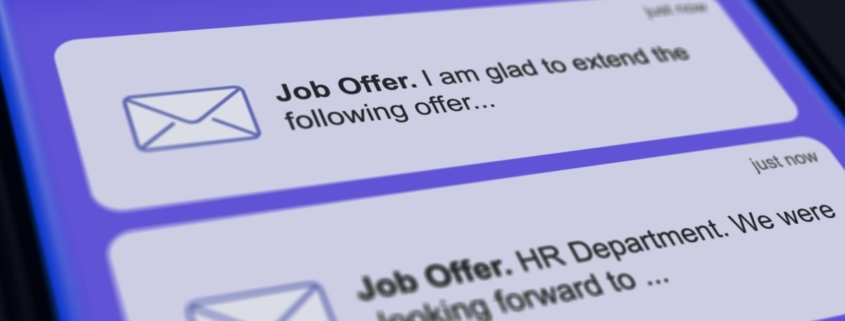How to brief recruiters so they deliver the right candidates faster
Finding the right talent quickly, is a growing challenge for organisations operating in a competitive and skills-driven labour market. While many employers invest in external recruitment services to support their hiring needs, the success of those services often depends on how clearly expectations are communicated from the start.
A well-prepared brief enables recruiters to work efficiently, target the right talent pools, and represent your business accurately to potential candidates. This guide outlines practical steps employers can follow to brief recruiters effectively and achieve faster, more reliable hiring outcomes.
Understanding the recruiter’s role and why the brief is critical
A recruitment agency is far more than a CV supplier. At its best, it operates as an extension of your internal talent acquisition function, representing your organisation in the labour market and translating your hiring needs into a targeted search strategy.
For recruiters to deliver the right candidates quickly, they must first understand how your business operates, the culture of the team they are hiring into, the technical and behavioural requirements of the role, and what success looks like once the candidate is in the position. Without this context, even experienced recruiters are forced to work on assumptions, which slows the process and reduces accuracy.
This is why the briefing stage is so critical. A well-structured brief gives the recruitment agency the clarity, context, and direction they need to engage the right talent from the outset.
Why a good brief matters
A strong recruitment brief sets the foundation for an effective hiring partnership. When done correctly, it:
- Aligns expectations between hiring managers, HR teams, and the recruitment agency
- Reduces time lost reviewing unsuitable or misaligned candidates
- Improves quality-of-hire and increases employee retention
- Shortens time-to-offer and accelerates onboarding
- Strengthens the long-term working relationship with your recruitment partner
In contrast, vague or incomplete briefs often result in repeated candidate rejections, extended hiring timelines, and unnecessary pressure on internal teams. Over time, this can increase recruitment costs and delay critical business objectives.
Simply put, the quality of the brief directly determines the quality and speed of the recruitment outcome.
Step-by-step: How to brief a recruitment agency so they deliver faster, better results
Briefing a recruitment agency is not a once-off administrative task. It is the foundation of the entire hiring process. Follow these steps in order to give recruiters the clarity and direction they need to perform at their best.
Step 1: Define the role clearly and accurately
Start by confirming the correct job title and the real purpose of the role. Use job titles that candidates actively search for and recognise in the market. Avoid internal jargon, inflated titles, or creative naming. Then clearly explain why the role exists.
Why this matters:
Recruiters rely on job titles and role context to search databases, approach passive candidates, and position the opportunity accurately. If the title or purpose is unclear, the recruitment agency may attract the wrong level of talent or misrepresent the role to candidates.
Best way to do it:
Provide a short role overview that answers all of the following
- Why is this role needed now?
- Is it a replacement, growth hire, or new function?
- Where does it sit in the organisational structure?
- Who does the role report to?
This ensures the recruitment agency understands both the business need and the seniority of the role from the outset.
Step 2: Break down the role’s responsibilities
List the role’s core responsibilities in practical, real-world terms.Avoid copying generic job descriptions. Focus instead on what the employee will actually be doing day to day and what success looks like in the first year.
Why this matters:
Recruiters use responsibilities to assess relevance. Candidates with the right job title but different daily experiences may not be suitable. Clear responsibilities help recruiters screen accurately and avoid sending “technically correct but practically wrong” candidates.
Best way to do it:
Group responsibilities into:
- Daily or ongoing duties
- Key projects or deliverables
- Short-term priorities (first 6 months)
- Longer-term expectations
This helps the recruitment agency identify candidates who can contribute quickly and grow into the role.
Step 3: Identify non-negotiable requirements vs. flexible criteria
Separate essential requirements from those that are negotiable. Not every requirement carries equal weight, and treating them as such limits the available talent pool.
Why this matters
In 2026’s competitive labour market, insisting on unrealistic or overly rigid criteria can significantly slow hiring. Recruiters need to know where they can be flexible without compromising performance or compliance.
Best way to do it
Clearly label:
- Must-haves: skills, experience, or qualifications the candidate cannot succeed without.
- Nice-to-haves: skills that can be learned or developed on the job.
This allows the recruitment agency to prioritise hiring quality candidates while expanding the search where appropriate.
Step 4: Describe the type of person who will succeed
Explain the behavioural and cultural attributes required for success in the role, this goes beyond personality. It includes work style, decision-making ability, communication approach, and adaptability.
Why this matters:
Many hiring failures occur due to poor cultural or behavioural fit, not technical gaps. Recruiters need this insight to assess candidates holistically and avoid costly mismatches.
Best way to do it:
Describe:
- How the team works together
- Level of independence expected
- Leadership or collaboration requirements
- Pace and pressure of the environment
This helps the recruitment agency assess alignment early and present candidates who will integrate well into the team.
Step 5: Provide clear and honest compensation information
Share the salary range and benefits upfront. This includes base salary, incentives, benefits, and working arrangements.
Why this matters:
Candidates expect transparency, and recruiters cannot accurately gauge interest without compensation details. A lack of clarity leads to declined offers, renegotiations, and extended hiring timelines.
Best way to do it:
Be realistic and market-aligned. If flexibility exists, explain where it applies (e.g., experience-based variation).
Include:
- Salary range
- Bonuses or incentives
- Benefits (medical aid, pension, leave)
- Remote, hybrid, or onsite expectations
This allows the recruitment agency to position the role correctly and avoid misalignment later in the process.
Step 6: Set clear timelines and urgency levels
Communicate how urgent the role is and the desired hiring timeline.
Why this matters:
Recruiters manage multiple searches simultaneously. Understanding urgency helps them prioritise resources, escalate outreach, and manage candidate expectations effectively.
Best way to do it:
Specify:
- When interviews should ideally begin
- Target start date
- Consequences of delays (e.g., business impact)
Clear timelines help the recruitment agency plan sourcing activity and maintain momentum.
Step 7: Agree on communication and progress tracking
Set expectations for updates and reporting.
Why this matters:
Clear communication prevents misunderstandings, maintains momentum, and keeps all stakeholders aligned throughout the process.
Best way to do it:
Agree on:
- Update frequency
- Preferred communication channels
- Progress metrics (CVs submitted, interviews, offers)
This ensures transparency and accountability.
Step 8: Provide timely, constructive feedback
Give feedback quickly after reviewing CVs or conducting interviews.
Why this matters:
Recruitment is a continuous cycle. Feedback allows the recruitment agency to refine the search and improve candidate quality with each submission.
Best way to do it:
Be specific:
- What worked well
- What didn’t align
- What should change next time
Fast, clear feedback accelerates results and strengthens the partnership.
Turn better briefs into better hiring outcomes
Briefing recruiters properly is one of the most effective ways to improve hiring speed, candidate quality, and long-term retention. When employers invest time upfront to provide clarity, context, and realistic expectations, recruitment partners are empowered to deliver real value rather than simply filling roles. Strong briefs lead to stronger partnerships and ultimately, stronger teams.
If you want to maximise the return on your recruitment services and ensure your next hire is the right one, partnering with an experienced provider makes all the difference. Speak to MASA today to find out how our tailored recruitment solutions can help you attract, assess, and secure the right talent faster and more effectively.












